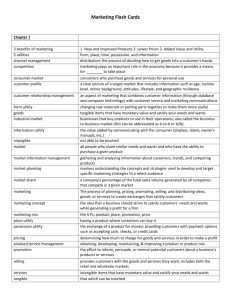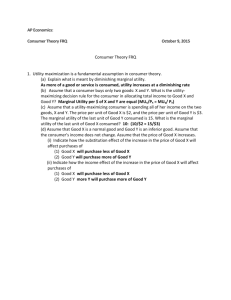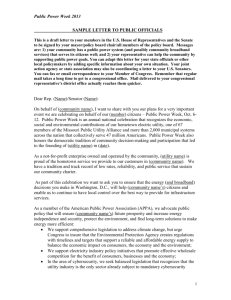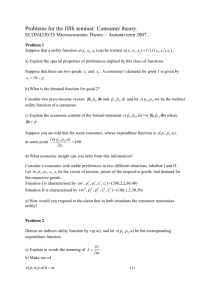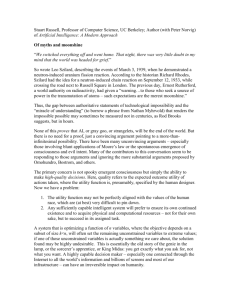Learning Goals Ch5
advertisement
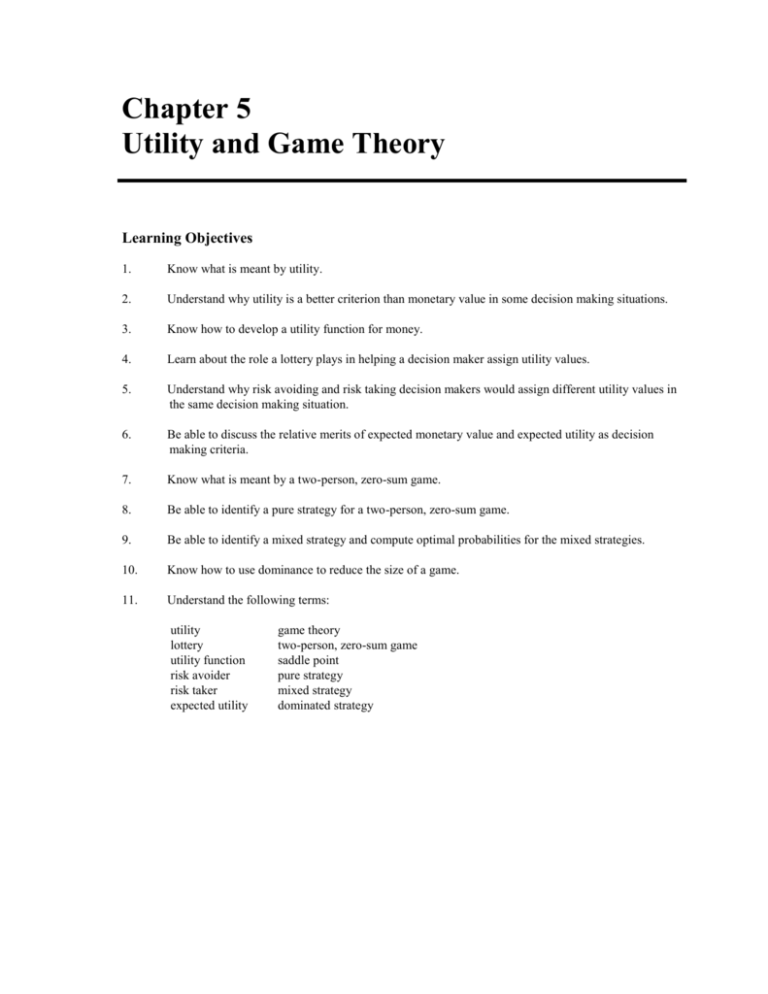
Chapter 5 Utility and Game Theory Learning Objectives 1. Know what is meant by utility. 2. Understand why utility is a better criterion than monetary value in some decision making situations. 3. Know how to develop a utility function for money. 4. Learn about the role a lottery plays in helping a decision maker assign utility values. 5. Understand why risk avoiding and risk taking decision makers would assign different utility values in the same decision making situation. 6. Be able to discuss the relative merits of expected monetary value and expected utility as decision making criteria. 7. Know what is meant by a two-person, zero-sum game. 8. Be able to identify a pure strategy for a two-person, zero-sum game. 9. Be able to identify a mixed strategy and compute optimal probabilities for the mixed strategies. 10. Know how to use dominance to reduce the size of a game. 11. Understand the following terms: utility lottery utility function risk avoider risk taker expected utility game theory two-person, zero-sum game saddle point pure strategy mixed strategy dominated strategy



